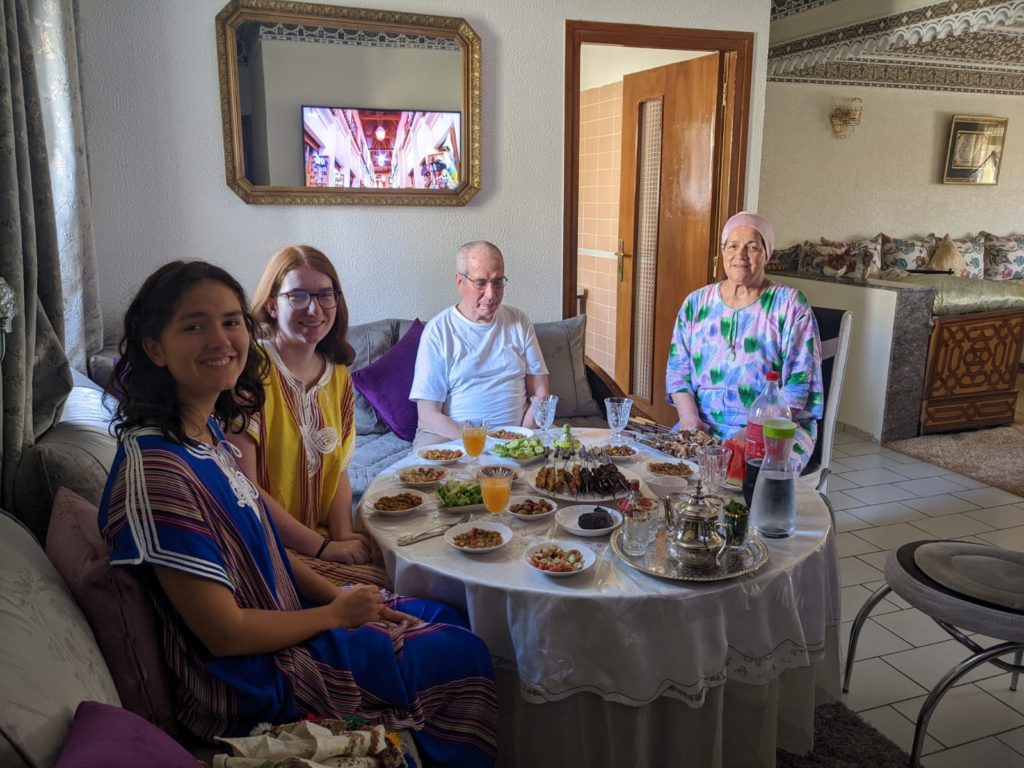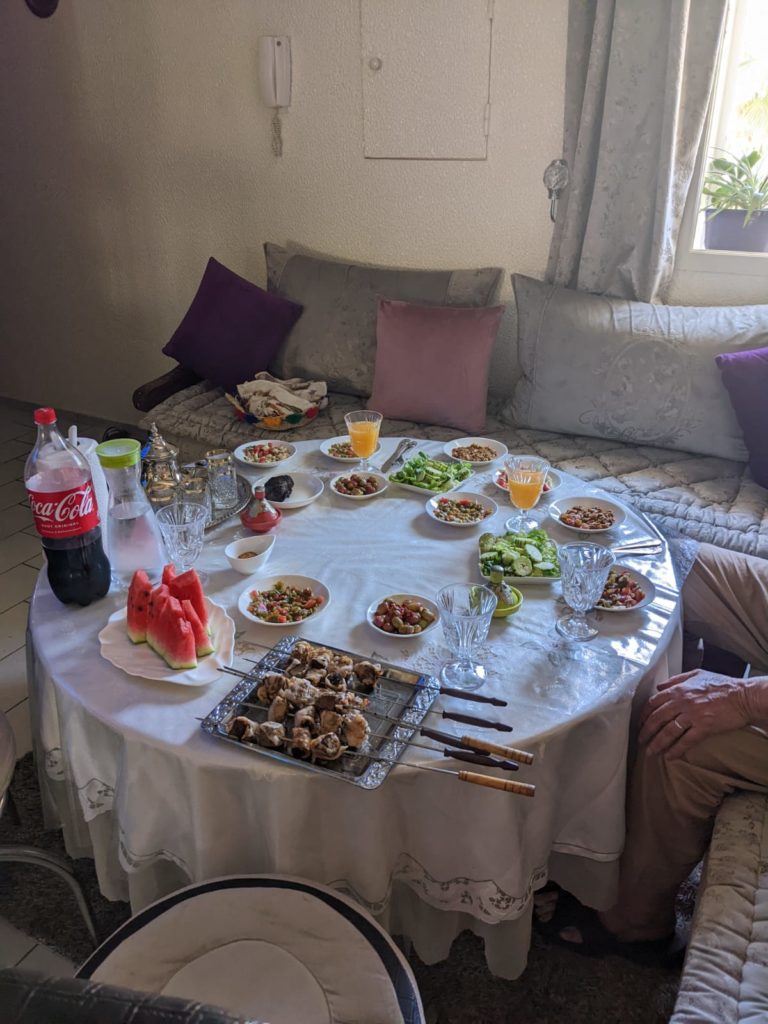Mission Status: In Progress
Skill: Embracing Cultural Customs
Status: In Progress
One of the first bits of information I learned before coming to Morocco was that I would, luckily, be in the country for عيد الكبير or عيد الأضحى (Eid al-Kabir or Eid al-Adha). Being a first-time traveler to the Arab world and a novice to Islamic and Arab culture, I had no clue what this holiday entailed, but I was very much excited to find out. After a quick Wikipedia search, I learned not only the history/origins of the holiday but also the unique reality of what Eid would actually be like.
The Origins:
In a time very long ago (before the birth of Christ), there was a man named Ibrahim who longed for a child and was granted one son, by way of Hagar, who would be called Ismail. Given the wonderful nature of Ismail’s birth, Ibrahim rejoiced and bestowed his son with endless amounts of love. In order to test Ibrahim’s devotion, الله (God) tasked Ibrahim with killing his only son. Ibrahim had no other option but to follow God’s will. Right before Ibrahim was about to kill Ismail, God presented a lamb that should be killed in place of Ismail. Ismail would later go on to head the line that would produce the great prophet of Islam, Muhammad (عليه الصلاة والسلام).
The Tradition:
In honor of Ibrahim’s devotion and God’s sacrificial offering, Muslims slaughter their own sheep as a reminder of God’s mercy and love. The day begins early with men attending prayer at the مسجد (mosque). Once they finish the prayer, the men return to their homes. In Morocco, it is customary to wait until the King slaughters his sheep first, which is conveniently broadcasted on television throughout the entire day. Once the King kills his sheep, households around the whole country follow suit. Once the sheep are killed and cleaned by the men, the women take over by preparing the parts of the sheep for consumption. This process takes hours and specific practices have to be carried out. The holiday concludes with eating the sheep in large family gatherings that draw visitors from near and far.
Beyond the celebratory aspects of the day, there is a tone of almsgiving and sincerity that encompass the whole day. While sheep are essential for the day’s events, it is known that not all people can afford one of their own. Therefore, Moroccan families with sheep, like my own, donate parts of their sheep to charity. Additionally, while millions of animals are slaughtered worldwide on Eid, no waste is produced. Every part of the sheep is consumed or saved to be used for a specific purpose.
My Experience:
As someone who feels faint at the sight of blood and strongly dislikes anything remotely medical because of the sight of blood, I was wary about this holiday, but I can gladly say that I appreciate my ability to celebrate with my Moroccan family because I was able to appreciate what this holiday means to them. Although I did not participate in the killing or eating, I did meet the sheep before his slaughter, witnessed some of the cleaning processes, and spent a wonderful time with my host family and for that, I could not be more grateful.

